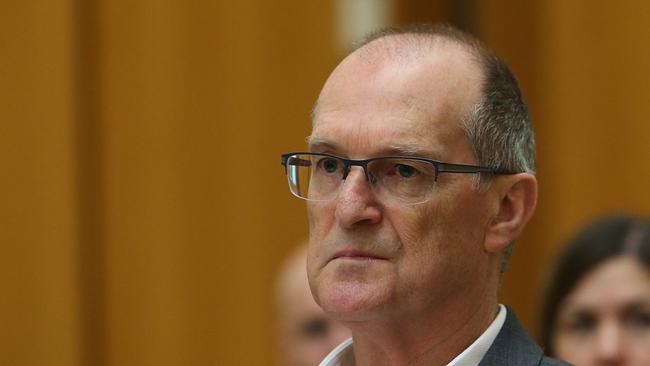Job strength drives tax haul, fuels optimism
Treasury is increasingly confident of its forecast of a return to sustainable 3 per cent economic growth.

Treasury is increasingly confident of its forecast of a return to sustainable 3 per cent economic growth, believing consumers will shrug off the effect of falling house prices.
The key to Treasury’s optimism, revealed in the first substantial statement on the economy from new department secretary Phil Gaetjens, is the strength of the government’s tax collections.
In his testimony to the Senate economics committee yesterday, Mr Gaetjens drew attention to the better-than-expected 2017-18 budget deficit of $10.1 billion — 44 per cent smaller than forecast — and to the preliminary estimates for the first two months of the financial year, which show revenue growth of 8 per cent.
Better-than-expected personal and company tax receipts are responsible. The growth in personal income tax appears to be driven by rising employment. Although wage growth remains subdued, the shift of people from unemployment to a job brings a sharp lift in the government’s financial position.
Mr Gaetjens said although wage growth was weaker than would normally be expected after several years of solid economic growth, it was in line with forecasts and expected to rise, carrying inflation with it, supported by the strong labour market.
Treasury believes the strength of employment will encourage consumers to keep spending, despite falling house prices. The May budget identified the possibility of weaker consumer spending as the biggest domestic risk to the outlook. Declining wealth, brought by a softer housing market, and weak income growth could lead consumers to cut back, it said.
However, the June quarter national accounts, released last month, showed consumers were continuing to lift spending faster than the slow growth in their incomes, with savings dropping to just 1 per cent of their disposable income.
Mr Gaetjens said he anticipated further declines, suggesting consumers would soon be spending more than they earned in the expectation that their incomes would recover.
Treasury says another threat to consumption is the tightening of financial conditions, as big banks pass on rising funding costs to their mortgage borrowers and strengthen their lending standards in response to pressure from APRA and the royal commission.
Treasury will update its forecasts in the mid-year budget update in December. The message from the new department secretary was to expect little change beyond the probability of an improved budget bottom line.


